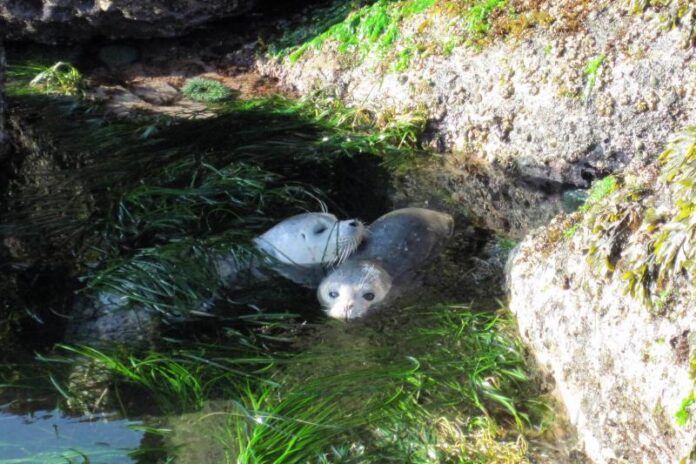Scientists in BC are keeping a close eye on an avian flu outbreak south of the border, which is now infecting seals.
It’s the first case of a highly pathogenic avian influenza (HPAI) virus in seals on North America’s West Coast.
So far the virus has not been found in BC birds or marine mammals, but Martin Haulena, head veterinarian and director of animal health with the Vancouver Aquarium Marine Mammal Rescue Centre, says they are watching for it.
“We’re on the lookout,” he says. “This is a pretty good example of one of the things we do in marine mammal stranding networks and marine mammal rehab centres, is survey animals for diseases that are of zoonotic concerns, that can affect people, but also of population concerns to seals and other things they share the environment with.”
On Friday the Washington State Department of Health confirmed an avian flu outbreak of the H5N1 virus which killed 1,700 gulls near Port Townsend had also infected three harbour seals. The same virus killed more than 3,500 sea lions in Peru this spring.
“This discovery follows an ongoing HPAI outbreak affecting seabirds on Rat Island and Marrowstone Island since mid-summer,” says a statement from NOAA Fisheries, the American equivalent of Fisheries and Oceans Canada.
The Islands are next to each other in the northern portion of Puget Sound, Washington, and are only a short boat ride away from Vancouver Island’s southern tip.
“The discovery of HPAI H5N1 in seals brings to light the potential for cross-species transmission and highlights the complexity of managing infectious diseases in wildlife populations,” says Kristin Wilkinson, NOAA Fisheries’ Regional Stranding and Entanglement Coordinator. “As the investigation continues, the collaboration among agencies remains essential to understanding and addressing this situation.”
Haulena says the centre will likely be the first to notice if it does show up in BC; they rescue dozens of marine mammals each year and survey them for any diseases of concern to animals and people.
He points out most marine mammals can carry avian flu and not get sick, or show any signs of infection, while others could die from subsequent disease. Scientists are still working to understand how the avian-origin virus causes disease in seals and sea lions, but NOAA researchers believe the disease is not expected to affect the species at a population level.
Influenza viruses have been detected in marine mammal populations on the east coast since the late 1970s and avian flu was responsible for a spike in unusual mortalities in Maine last year.
In Washington, people are being cautioned to avoid contact with wild birds and other wild animals, especially sick or dead wild animals or their young.
HPAI is a “zoonotic disease” that has the potential to spread between animals and people (and their pets). Although the risk of infection to the general public remains low, beachgoers should not touch live or dead seals or allow pets to approach seals. They should maintain a safe distance of 100 yards.






